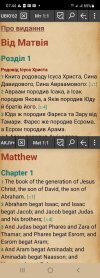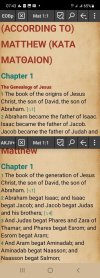I have become quite disenchanted with skip-around teaching. That's when a person is not anchored in a passage, and just cherry picks the 'fun' sounding passages and strings them together. Their meaning can be outrageously off. A Bible teacher should realize that there is already an abundance of narrative to teach through; those are reality saved for us for all ages, to teach the faith. But there are also doctrinal passages and letters where some real-life situations are needed to help. So it is not as though a teacher 'needs' to skip-around to make things interesting.
If a teacher honestly does not 'get' a passage (let's say the 'which is easier' miracle of Mk 2 and Mt 8), then he should not hop around like a sparrow to grab one phrase here and another there until time is up. He should get out the books and find out what the thing truly means and declare that to the students. If we don't do that we are seriously weakening the Bible, turning it into a collection of unrelated magical sayings until we connect them. That's not what it is.
Hello Decoder;
You make a good point. We have to remember that many who are young teachers of the Word will use skip-around teaching. There has to be a starting ground and there will be "surface teaching" at first, lacking the hermeneutics, exegesis which takes development. I've actually attended Bible studies with young teachers and there would be moments of awkward pause. In time it's actually a joy when God takes them to a new level of teaching that benefits the disciple.
Back to your good point. If a young teacher is still at the level of "surface teaching" and isn't developing, then we need to be concerned with their study research and prepare time of the lesson that they're teaching. In this case they need additional training from seasoned Bible teachers or mentor pastors.
Of course if they have the heart to teach is commendable, but the heart needs to balance the perseverance of personally getting built up (trained in teaching) the Word.
God bless you, Decoder, and your whole family.


